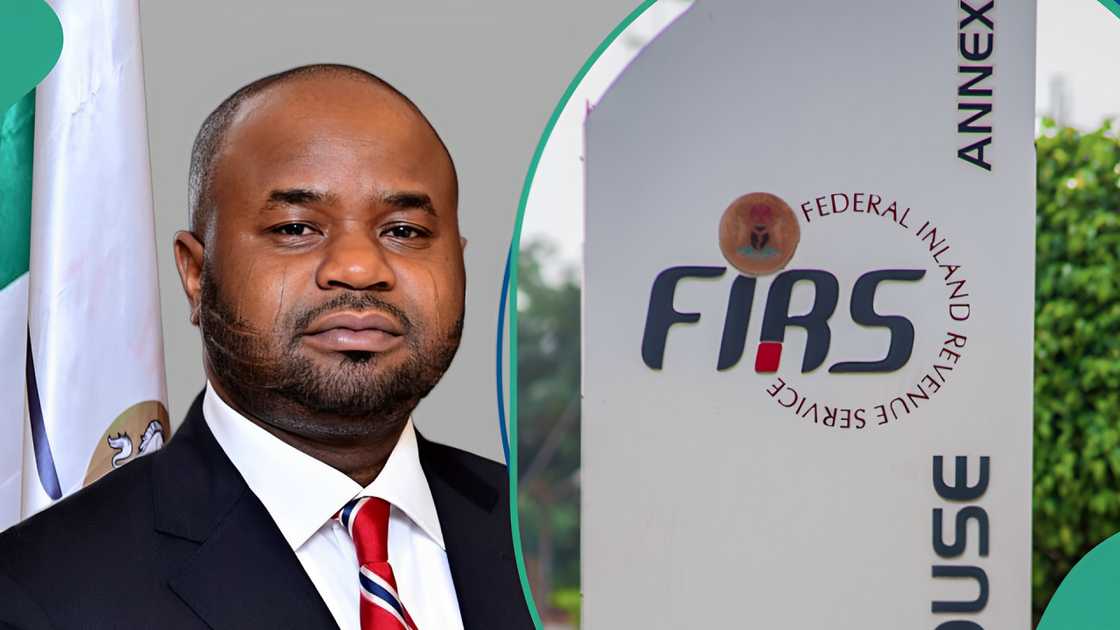Zacch Adedeji’s People-First Reforms Transform FIRS into a Development Partner
The Federal Inland Revenue Service (FIRS) is increasingly being recognised as more than a government agency—it is emerging as a partner in Nigeria’s national development.
Under the leadership of Executive Chairman Dr. Zacch Adedeji, the organisation has rolled out people-focused reforms designed to improve efficiency, foster transparency, and deliver tangible results for citizens and the economy.

Source: UGC
Reforms rooted in people and results
Since assuming office, Adedeji has implemented practical measures across tax administration, staff welfare, and public engagement.
His approach blends policy reforms with improved teamwork, the adoption of advanced technology, and a commitment to accountability.
One of the most notable steps came in August with the launch of an electronic invoicing system for companies with annual turnovers of ₦5 billion or more.
By the second week of rollout, over 1,000 companies—including MTN, Huawei, and IHS—had already onboarded.
Businesses have until November 1 to comply, with the transition managed in a way that minimises disruption.
Policy creating jobs and economic growth
The e-invoicing initiative is already yielding wider economic benefits. Afri Invoice, a Nigerian firm providing e-invoicing solutions, has hired 150 new employees in seven states to meet rising demand.
This, industry observers say, is proof that effective tax reforms can stimulate job creation and economic activity beyond the public sector.
Transparency through data and research
On August 7, FIRS hosted its first-ever Research Day, releasing three significant resources to the public.
These included the Tax Revenue Statistical Bulletin—covering over 50 years of tax data—the agency’s official Research Policy, and the latest FIRS Journal of Tax Studies, now available online.
The aim, according to Dr. Adedeji, is to promote transparency and enable informed decision-making for researchers, policymakers, journalists, and entrepreneurs.
Improving taxpayer experience
Beyond major policy rollouts, FIRS has expanded tax education and public outreach, especially targeting small and medium enterprises.
Complex processes have been simplified, and partnerships with state revenue agencies have been strengthened to ensure both federal and state systems operate in harmony.
Tax dispute resolution has also been reformed, offering quicker, out-of-court settlements.
Meanwhile, improved digital platforms now allow taxpayers to register, file, and pay from anywhere, reducing physical bottlenecks and saving time for businesses and individuals alike.
A leadership style focused on service
Dr. Adedeji’s reforms are underpinned by capacity building within FIRS. Staff training has been prioritised to meet the demands of modern tax administration, while his leadership style—marked by clarity, data-driven decision-making, and people-first thinking—has fostered trust between the government and the public.

Source: Facebook
Observers say his work demonstrates that when leadership blends critical thinking with genuine care for people, lasting institutional transformation is possible.
For millions of Nigerians, these reforms are not just administrative changes—they are signs of a tax system evolving to serve them better.
FIRS rolls out e-invoicing to curb tax evasion
A prior report by Legit.ng disclosed that the FIRS has launched a groundbreaking electronic fiscal system (EFS) designed to modernise tax administration and improve compliance among Nigeria’s largest taxpayers.
Known as the Merchant-Buyer Model (MBM), the platform went live on August 1 after a pilot phase that began in November 2024.
The EFS provides real-time visibility into commercial transactions, ensuring that invoices are authentic, accurate, and complete.
Source: Legit.ng




